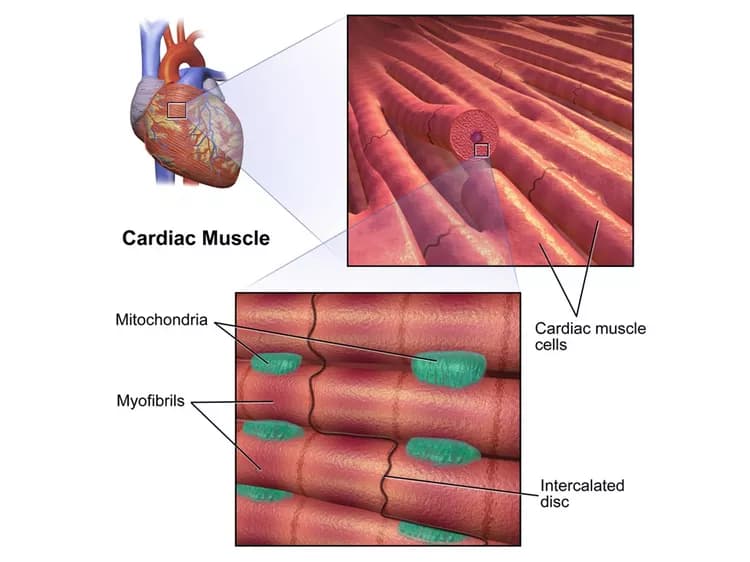
New Hope For Treating Fibrotic Diseases Which Cause Organ Impairment
A breakthrough discovery in the field of cardiovascular fibrosis research made at Duke-NUS Medical School (Duke-NUS) and National Heart Centre Singapore (NHCS) has been licensed to a newly launched company Enleofen Bio Pte Ltd, a Singapore-funded biotechnology start-up.
Enleofen Bio plans to use the intellectual property (IP) derived from the Duke-NUS and NHCS research to develop first-in-class therapeutics for the treatment of multiple fibrotic human diseases including cardiac and pulmonary fibrosis. Fibrosis is the formation of excessive connective tissue, similar to the formation of scar tissue during the healing process; however, the excessive connective tissue in fibrotic disease does not heal but rather disrupts the structure and function of the organ and tissue where it forms, rendering it diseased. This process may affect many tissues within the body and is the main pathology behind heart and renal failure.
Professor Stuart Cook along with Assistant Professor Sebastian Schafer, who are both from NHCS and Duke-NUS' Programme in Cardiovascular & Metabolic Disorders, carried out the translational research to identify the key drivers of chronic fibrotic disease in heart, kidney and other tissues.
The team's findings will be presented at the Annual Congress of the European Society of Cardiology in Barcelona, on 28 August 2017.
"We discovered that a specific cytokine1 is a key driver and potentiator of TGF-beta2 in cardiac fibrosis. Ironically, it has been in plain sight for many years, but unfortunately for patients, this target was completely mischaracterised and hence overlooked," explained Professor Cook, who is Director of the Programme in Cardiovascular & Metabolic Disorders at Duke-NUS Medical School, Director of the National Heart Research Institute Singapore, as well as a scientific founder of Enleofen Bio.
The development of the IP was facilitated by a unique collaborative model between Duke-NUS, NHCS and the National Health Innovation Centre of Singapore. All three organisations partnered with Professor Cook to de-risk the discovery and prepare therapeutic technologies for commercial readiness as part of an 'Active Translation Model'. The Enleofen Bio agreement represents a significant milestone in the development and commercialisation of fundamental biomedical research conducted at Duke-NUS and SingHealth, which promises to lead to improved healthcare outcomes.
"We are very excited to see this great Singapore-derived therapeutics platform now under development at Enleofen Bio," said Centre for Technology and Development's (CTeD) Director and Duke-NUS Vice Dean for Innovation and Entrepreneurship, Professor David Epstein. "We have found the right partners to take Professor Cook's work to the next level of clinical application to improve peoples' health and lives."
"The licensing of this IP demonstrates Duke-NUS and SingHealth's dedication to doing impactful research and translating that science to medical solutions," said Senior Vice Dean of Research at Duke-NUS, Professor Patrick Casey.
Professor Terrance Chua, Medical Director of NHCS, who is also Group Chairman Medical Board, SingHealth, and Academic Chair of the SingHealth Duke-NUS Cardiovascular Academic Clinical Programme added: "Professor Cook led a group of dedicated clinicians and scientists within SingHealth and Duke-NUS to do ground-breaking research on fibrosis, and SingHealth and CTeD accelerated that progress to commercialisation. We are confident that such innovative research, which plays a significant role in setting new healthcare standards and transforming models of care, will continue to aid healthcare professionals to apply the science into practical and clinical solutions to improve patient care and treatment."
Notes:
1. Cytokines are a broad and loose category of small proteins that are important in cell signalling. Their release has an effect on the behaviour of cells around them.
2. TGF-beta (transforming growth factor beta) is a kind of cytokine that plays an important role in growth and development, inflammation, repair and host immunity.
Materials provided by Duke-NUS Medical School. Note: Content may be edited for style and length.
Disclaimer: DoveMed is not responsible for the accuracy of the adapted version of news releases posted to DoveMed by contributing universities and institutions.
References:
Duke-NUS Medical School. (2017, August 28). New hope for treating fibrotic diseases which cause organ impairment. Retrieved August 29, 2017.
Related Articles
Test Your Knowledge
Asked by users
Related Centers
Related Specialties
Related Physicians
Related Procedures
Related Resources
Join DoveHubs
and connect with fellow professionals

0 Comments
Please log in to post a comment.